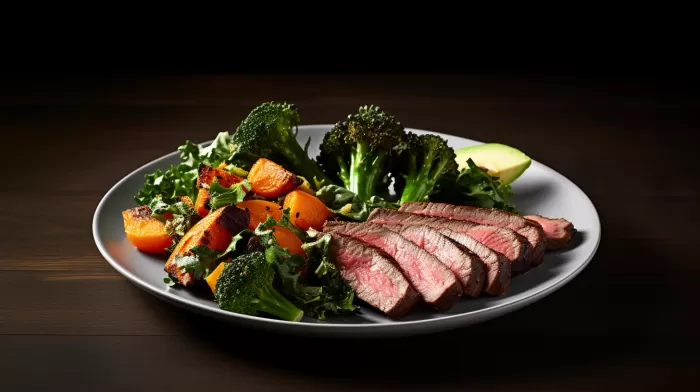The paleo diet has surged in popularity in recent years, garnering both praise for its health benefits and criticism from those who doubt its safety. Among the more alarming claims from the diet’s critics is an alleged connection between paleo eating and an increased risk of cancer. But to what extent do these claims hold weight?
Misconceptions about Meat Consumption
Central to the paleo diet is the inclusion of meat in daily meals, which has both lent to its appeal for some and contributed to its criticism from others. Critics argue that excessive meat consumption leads directly to a greater risk of developing cancer, erroneously implying that followers of the paleo diet gorge on excessive amounts of meat.
In reality, most adherents to the paleo lifestyle prioritize fruits and vegetables over meats, as these plant-based foods are rich in natural chemicals (phytochemicals) that provide protection against cancer and other chronic diseases. Further, the term “meat” encompasses a wide range of products with varying nutritional value, from questionable additives found in processed hot dogs to the healthier fatty acids in organic, grass-fed beef.
Flawed Research?
Some cancer studies have claimed to find a connection between meat consumption and an increased risk of certain types of cancer. However, the potential flaw in this research is that it often doesn’t account for the stark differences between types of meat, such as processed and unprocessed red meat.
For example, a study from Harvard suggested that red meat consumption increases a woman’s risk of breast cancer by 13 percent for every daily serving. However, this study made no distinction between processed red meats like hot dogs, bacon, and sausage and unprocessed red meats such as beef, pork, or lamb. It didn’t take into account other factors such as the animals’ diet and their exposure to pesticides and antibiotics.
The Importance of Differentiation
When examining studies that warn against the dangers of red meat, it’s essential to consider the specific foods under discussion. Eating processed meats every day might increase one’s risk of cancer and other health complications, whereas consuming moderate amounts of unprocessed and organic options, such as grass-fed beef, might not pose the same harm.
The Bottom Line
Though some critics attempt to argue that a paleo lifestyle leads to a greater risk of developing cancer, this is far from an undisputed notion. The diet’s emphasis on incorporating a variety of fruits and vegetables in meals provides countless health benefits, including cancer protection. The paleo diet encourages the inclusion of meat, but advocates for sustainable and grass-fed animal products rather than commercially processed and chemically treated meats.
It’s crucial to remember that moderation and variety are key components of any healthy diet. A paleo lifestyle doesn’t have to include excessive amounts of meat consumption, nor does it automatically increase one’s risk of cancer when followed responsibly. Instead, focus on eating more fruits, vegetables, and unprocessed, high-quality meats while avoiding overly processed options known to have a negative impact on health.



